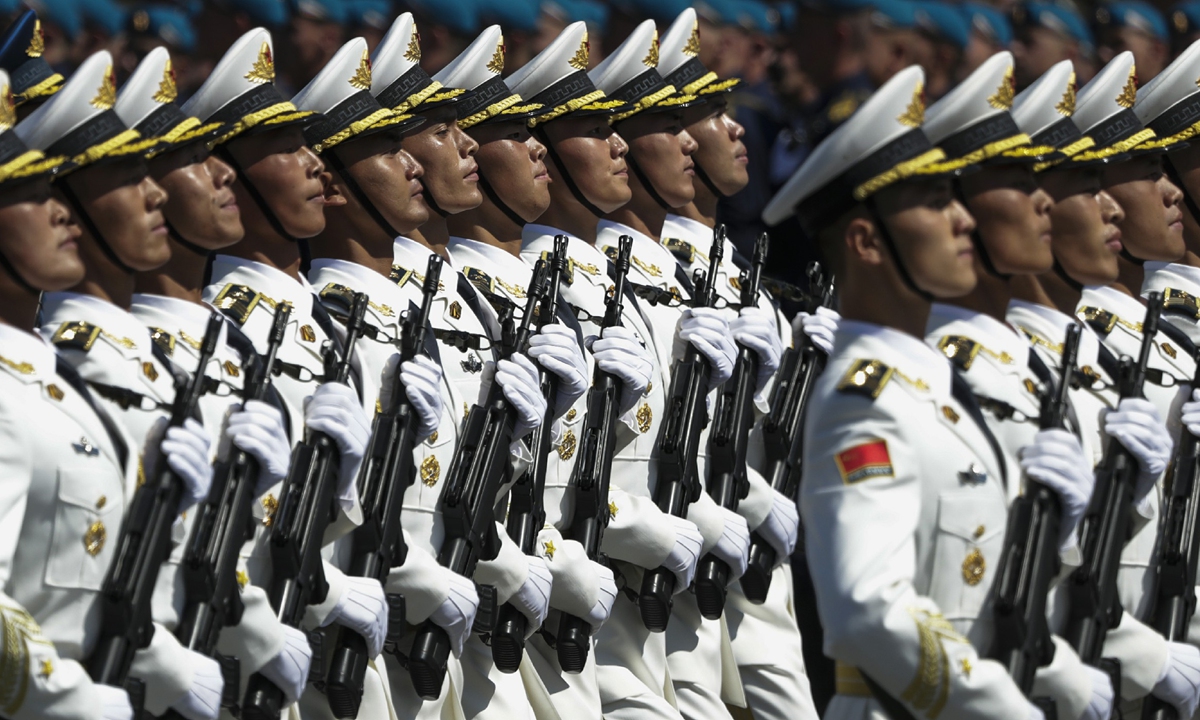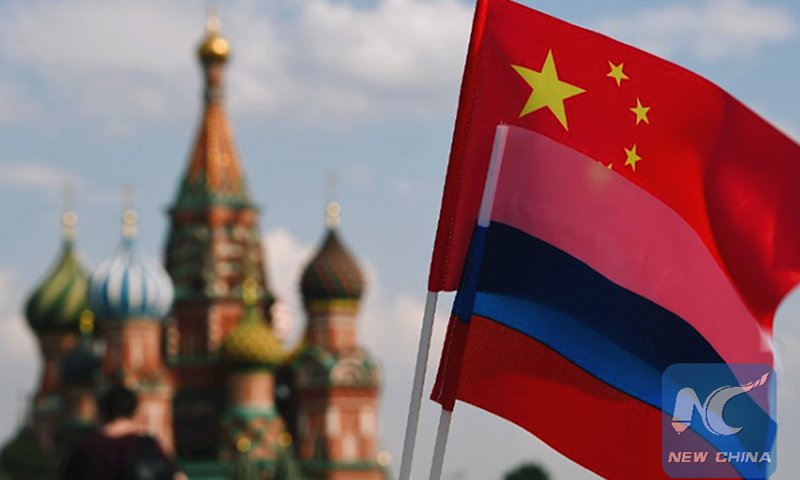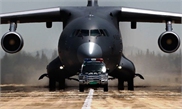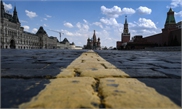
Photo:AFP
Russia staged a grand Victory Day military parade in Moscow's Red Square to commemorate the 75th anniversary of the end of the Great Patriotic War on Wednesday, and members of the Chinese People's Liberation Army (PLA) honor guard participated, with analysts saying China-Russia strategic ties remain unshakable amid rising pressure from the West.
Chinese Defense Minister Wei Fenghe attended the parade at the invitation of his Russian counterpart Sergey Shoygu, according to the Chinese defense ministry.
China's participation in the parade showed that the two major powers not only share common strategic interests, but also share common ground in safeguarding the correct historical view of World War II. In contrast, some Western voices are trying to downplay the contributions made by China and the former Soviet Union in the anti-fascist war, said Chinese observers.
Russian President Vladimir Putin said in a speech before the parade that the world owed the Soviet Union a debt of gratitude for its contributions to the defeat of Nazi Germany in World War II, according to the Moscow Times.
"It is impossible even to imagine what the world would be if the Red Army (of the Soviet Union) hadn't come to defend it," Putin said in an address to thousands of troops gathered to participate in the annual Victory Day parade. Soviet soldiers "freed European countries from the aggressors and put an end to the terrible tragedy of the Holocaust, saving the German people from Nazism," Putin said.
China always holds a fair and just stance to jointly safeguard the historic view of World War II with Russia.
Five years ago, China also sent PLA honor guards to participate in the Russian V-day parade, and Putin and Russian military honor guards also participated China's V-Day parade to commemorate the 70th anniversary of the War of Resistance against Japanese Aggression as well as World War II in Beijing in 2015.
Yang Jin, an associate research fellow at the Institute of Russian, Eastern European and Central Asian Studies of the Chinese Academy of Social Sciences, told the Global Times that China and Russia were both victims and winners of the war, so safeguarding the correct historical view is a crucial part of China-Russia strategic ties, especially when some Western countries are hyping historical revisionism to serve their strategy.
In a lengthy essay published on the website of The National Interest on June 18, and also on that of the Kremlin, Putin warned, "Historical revisionism, the manifestations of which we now observe in the West, primarily with regard to the subject of the Second World War and its outcome, is dangerous."
The Russian leader referred in particular to a European parliament resolution of September 2019 that he wrote, "directly accused the USSR - along with Nazi Germany - of unleashing World War II."
Putin's conclusion was clear and defiant: "Desecrating and insulting the memory is mean."
Yang said the West is trying to downplay the contributions made by the former Soviet Union and to stigmatize the Russian military because of its current need to contain Russia.
"In fact, Western countries like the UK, France and the US held incorrect attitudes toward Nazi Germany and the Japanese Empire at the beginning of World War II which appeased and encouraged fascism to grow sharply and led many countries including Russia and China to suffer a lot from the invasion without any reinforcements. So these Western countries should be careful when using historical revisionism to accuse Russia, as they are not innocent either."

File photo:Xinhua
Military Cooperation
Many advanced Russian weapons including tanks, armored vehicles, artillery systems, fighter jets and missiles were shown at the massive parade, and observers noted that Russia always uses the military parade as a chance to demonstrate its strength to deter its enemies and rivals, as well as to promote these advanced products to clients and partners.
China and Russia enjoy a comprehensive strategic partnership of coordination for a new era, in which high levels of military cooperation and mutual trust play vital parts.
China has long been a customer of Russian weapons and equipment, as recently highlighted by Su-35 fighter jet and S-400 defense missile system deals.
Foreign reports suggest Russia is planning to offer a new batch of Su-35s and its most advanced fighter jet, the Su-57.
Russia is also helping China to build a missile attack warning system that could significantly increase China's defense capabilities, Putin said in October 2019. This kind of system is currently possessed by only Russia and the US. When put into use, the system could enable China to better conduct early warning missions against hostile strategic missile attacks, prepare interceptions and evacuations, and ready retaliatory attacks as fast as possible, analysts said.
Militaries of the two countries have also been conducting joint exercises.
For instance, China has joined Russia's large-scale strategic drills Tsentr-2019 and Vostok-2018 in the last two years. In July 2019, China and Russia conducted their first joint strategic patrol in Northeast Asia, with the Chinese side dispatching two H-6K bombers and the Russian side dispatching two Tu-95 bombers. In November and December 2019, the two countries also conducted naval drills in South Africa and the Gulf of Oman with South Africa and Iran respectively.
Global Times




